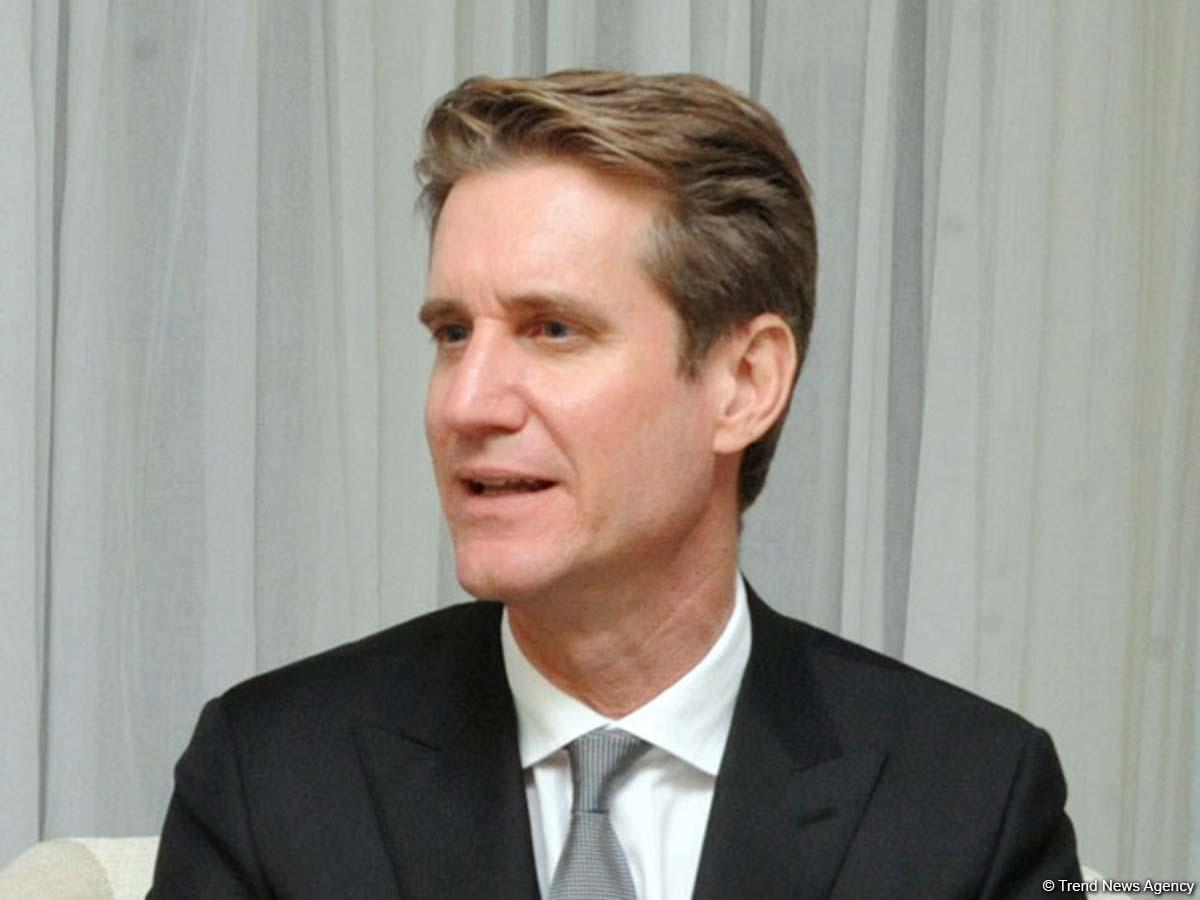Baku, Azerbaijan, April 1
By Leman Zeynalova – Trend:
The meeting held between Azerbaijani President Ilham Aliyev and Armenian Prime Minister Nikol Pashinyan in Vienna, Austria on March 29 is a good sign, in terms of diplomatic procedure, Matthew Bryza, former US ambassador to Azerbaijan and former co-chair of the OSCE Minsk Group, told Trend.
“It is a good sign, in terms of diplomatic procedure, that President Aliyev and Prime Minister Pashinyan have finally held their first meeting under the auspices of the Minsk Group. Substantively, it is positive that both leaders reaffirmed their call for strengthening the cease fire regime along the line of contact and for building an environment conducive to peace,” he said.
Bryza noted that these steps are hopeful signs that the two leaders are building a constructive personal relationship, step by step, which is a prerequisite for taking difficult decisions required to finalize a framework for a peace agreement.
The President of the Republic of Azerbaijan Ilham Aliyev and the Prime Minister of the Republic of Armenia Nikol Pashinyan met on March 29 in Vienna for the first time under the auspices of the Co-Chairs of the OSCE Minsk Group (Igor Popov of the Russian Federation, Stéphane Visconti of France, and Andrew Schofer of the United States of America).
The meeting was also attended by Foreign Ministers Zohrab Mnatsakanyan and Elmar Mammadyarov. Andrzej Kasprzyk, the Personal Representative of the OSCE Chairperson-in-Office, also participated in the meeting.
The statement issued on the results of the meeting reads that the two leaders underlined the importance of building up an environment conducive to peace and taking further concrete and tangible steps in the negotiation process to find a peaceful solution to the conflict.
“Recalling their conversation in Dushanbe, the leaders recommitted to strengthening the ceasefire and improving the mechanism for direct communication. They also agreed to develop a number of measures in the humanitarian field,” said the statement.
The conflict between the two South Caucasus countries began in 1988 when Armenia made territorial claims against Azerbaijan. As a result of the ensuing war, in 1992 Armenian armed forces occupied 20 percent of Azerbaijan, including the Nagorno-Karabakh region and seven surrounding districts.
The 1994 ceasefire agreement was followed by peace negotiations. Armenia has not yet implemented four UN Security Council resolutions on withdrawal of its armed forces from the Nagorno-Karabakh and the surrounding districts.
---
Follow the author on Twitter: @Lyaman_Zeyn






